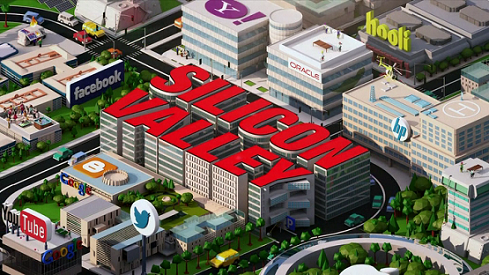Publisher: Maaal International Media Company
License: 465734
Massive wave of job cuts sweeps technology companies… Is Silicon Valley caught in fires of recession?
A recent report in “Fortune” magazine asked if we are already in a recession? The report considered that one of the clearest indications so far that the economic downturn is knocking on the door is the warning signs this week, when a number of American technology companies announced large-scale layoffs, while some announced a hiring freeze.
Warning sign:
Technology giants announced the redundancy of workers, and the social networking company Twitter was the latest.
اقرأ المزيد
E-commerce company Amazon announced that it will not fill certain positions at the company, while Apple said it will stop hiring in most departments. In doing so, they join other big tech companies, including Facebook’s parent company Meta and Google’s Alphabet, which have frozen hiring over the past few months.
Meanwhile, tech start-ups, including payments provider Stripe and ride-hailing company Lyft, have resorted to layoffs – both saying the slumping economy is becoming increasingly unfavorable for technology. More tech workers may be laid off soon as new Twitter owner Elon Musk is expected to cut half of the social media company’s workforce by 3,700 jobs, according to reports.
Over the past decade, tech companies have enjoyed exponential growth — and have spent lavishly, too. But with a global recession looming that could be much longer and more severe than many expect, the Silicon Valley companies that announced massive layoffs this week could be scapegoats for the larger economy.
“2022 marks the start of a different economic climate,” Strip CEO Patrick Collison wrote in an email to employees announcing the layoffs of 1,000 workers this week.
For technology companies, the new economic climate could mean cutting back on the rapid growth and huge spending that has characterized the past several years, and instead cutting costs where possible.
Most US CEOs – more than 90% – believe a recession is imminent, and more than half said they plan to proactively lay off workers within the next six months, according to an October poll by KPMG International.
Tough choices:
Strong economic headwinds, a weak performance in the last quarter, and fears of a recession prompted e-commerce giant Amazon to make some tough hiring choices. Last week, Amazon released dismal third-quarter earnings showing revenue growth of 15% – down from 37% a year ago – which was well below analysts’ expectations. Its stock plunged 20% overnight, ultimately driving the company’s market capitalization below $1 trillion for the first time since 2020.
Amazon executives have blamed poor results on faltering consumer demand, and warned that the weakness will continue into the next year. A week before the earnings report, founder and former Amazon CEO Jeff Bezos advised people to “prepare and hedge” in anticipation of an uncertain economic environment.
With lower demand for services, Amazon is looking to tie its belts. Last week, after the weak earnings report, the company laid off about 150 people, and on Thursday informed employees that it was implementing a hiring freeze in some of its divisions.
Recession fears:
Fintech company Stripe was perhaps the most direct about the impact of recession fears when it announced more than 14% of its workforce cuts, or more than 1,000 jobs. In an email to employees announcing the layoffs, the company’s CEO attributed the move, citing energy shocks, rising interest rates, inflation, declining investment, and fears of a global recession as reasons the company now “builds differently for different times.”
high costs:
Lyft said it would lay off 13% of its workforce, or roughly 700 employees, the Wall Street Journal reported. The executives said, “There are many challenges affecting across the economy. We’re facing a potential recession sometime next year, and flight insurance costs are on the rise.
Lyft already laid off about 60 workers in July in an effort to cut costs and boost its operations. The company implemented a hiring freeze in the United States in September, citing rising insurance costs and inflation as well as increasing uncertainty about future economic conditions.
Recovery plans:
In just over a week, from Elon Musk’s takeover of Twitter to carrying out a massive wave of layoffs, Musk suggested months ago that he was planning to lay off workers as soon as he took over, saying the company needed to “recover” in terms of finances and reduce costs. Last month, it was reported that up to 75% of Twitter’s workforce could be laid off, although Musk was quick to deny the rumours.
But despite the company’s silence on the matter, massive layoffs may still be on the table. Sources have reported throughout the week that managers have been ordered to draw up lists of people to be cut.
Meanwhile, Bloomberg reported that Musk was planning to cut 3,700 jobs, or about half of the company’s employees.









